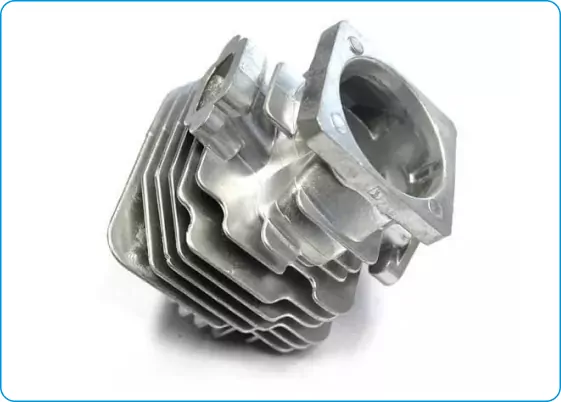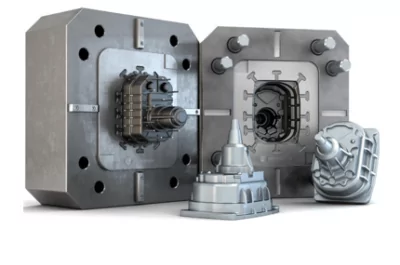Discover the Benefits of Die Casting in Automotive Applications

The automotive industry is at the forefront of innovation, always seeking ways to enhance performance, safety, and efficiency. One of the most significant advancements in recent decades has been the adoption of die casting for manufacturing critical automotive components. At Xilici Company (XLC), we specialize in providing cutting-edge die casting solutions that empower automotive manufacturers to stay ahead of the curve. In this article, we’ll explore the many benefits of die casting in automotive applications, discuss its impact on the industry, and touch on related technologies such as aluminum die casting and precision machining.
Understanding Die Casting: The Basics
Die casting is a manufacturing process that involves injecting molten metal under high pressure into a mold cavity. This process is renowned for its ability to produce complex shapes with exceptional dimensional accuracy and surface finish. At XLC, we use state-of-the-art die casting machines and proprietary alloys to ensure that every component meets the highest quality standards.
- High production efficiency
- Consistent part quality
- Reduced material wastage
- Excellent repeatability
The process is particularly suited for producing high-volume parts, making it ideal for the automotive sector, where millions of identical components are required each year.
Key Benefits of Die Casting in Automotive Applications
1. Lightweight Construction with Aluminum Die Casting
One of the primary drivers for die casting in the automotive industry is the need for lightweight yet robust components. Aluminum die casting has emerged as the material of choice due to its impressive strength-to-weight ratio. By utilizing aluminum alloys, XLC helps automotive manufacturers reduce vehicle weight, which directly contributes to improved fuel efficiency and lower emissions.
- Enhanced fuel economy
- Reduced CO2 emissions
- Superior corrosion resistance
Lightweight aluminum die cast parts are commonly used in engine blocks, transmission cases, chassis components, and even structural body parts. The versatility of aluminum die casting enables the creation of intricate geometries that would be challenging or cost-prohibitive with other manufacturing methods.

2. Precision and Complexity: The Role of Precision Machining
Automotive components require extremely tight tolerances to ensure proper fit and function. Precision machining is often combined with die casting to achieve the required accuracy and surface finish. At XLC, our advanced CNC machining centers complement the die casting process, allowing us to deliver parts with micron-level precision.
- Improved component reliability
- Reduced need for secondary finishing
- Faster assembly times
Precision machining is essential for producing critical parts such as transmission housings, valve bodies, and steering components, where even minor deviations can lead to performance issues or safety concerns.
Industry Trends and Innovations in Die Casting
The global automotive industry is undergoing a transformation, driven by the shift towards electric vehicles (EVs), stricter environmental regulations, and the demand for smarter, safer cars. Die casting is playing a pivotal role in enabling these changes.
Electric Vehicles and Battery Housings
As automakers transition to EVs, the need for lightweight, thermally conductive, and structurally sound battery housings has surged. Die casting, especially aluminum die casting, is perfectly suited for this application. XLC is at the forefront of developing innovative die cast solutions for EV battery enclosures, helping clients meet demanding safety and performance standards.
Integration of Complex Functions
Modern vehicles require components that combine multiple functions in a single part to save space, weight, and assembly time. Die casting allows for the integration of features such as mounting points, cooling channels, and electronic housings directly into the component design. This level of integration is difficult to achieve with traditional fabrication methods.
Advanced Alloys and Sustainability
The push for sustainability has led to the development of new, recyclable alloys and more energy-efficient die casting processes. At XLC, we are committed to using environmentally friendly materials and reducing our carbon footprint through optimized process control and recycling of scrap metal.
Die Casting vs. Other Manufacturing Methods
| Attribute | Die Casting | Forging | Stamping |
|---|---|---|---|
| Complexity | High | Low | Medium |
| Dimensional Accuracy | Excellent | Good | Fair |
| Production Speed | Fast | Slow | Fast |
| Material Efficiency | High | Medium | High |
| Cost per Part | Low (high volume) | High | Low |
As shown above, die casting offers unique advantages over forging and stamping, particularly when it comes to producing complex, high-precision parts at scale.
Why Choose XLC for Automotive Die Casting?
At Xilici Company (XLC), we combine decades of experience with a relentless commitment to quality and innovation. Our engineers work closely with automotive clients to develop custom die casting solutions that meet their specific requirements. From design optimization and material selection to high-volume production and precision machining, XLC is your trusted partner for every stage of the manufacturing process.
- ISO-certified manufacturing facilities
- Full in-house tool design and maintenance
- Rapid prototyping and product validation
- Comprehensive quality control and testing
Our expertise in aluminum die casting and precision machining allows us to deliver components that enhance vehicle performance, safety, and aesthetics while reducing costs and environmental impact.
Future Outlook: Die Casting in the Next Generation of Vehicles
Looking ahead, the role of die casting in automotive applications will only grow. With the rise of autonomous driving, connected vehicles, and the ongoing electrification of transportation, manufacturers will demand even greater levels of precision, integration, and sustainability. XLC is investing in digital manufacturing technologies, such as real-time process monitoring and AI-driven quality assurance, to stay at the forefront of this evolution.
In summary, die casting is a cornerstone of modern automotive manufacturing. Its unique combination of speed, accuracy, and material efficiency makes it indispensable for producing the high-quality, lightweight, and complex parts that today’s vehicles require. As the industry continues to innovate, XLC remains committed to delivering world-class die casting solutions that drive the future of mobility.
